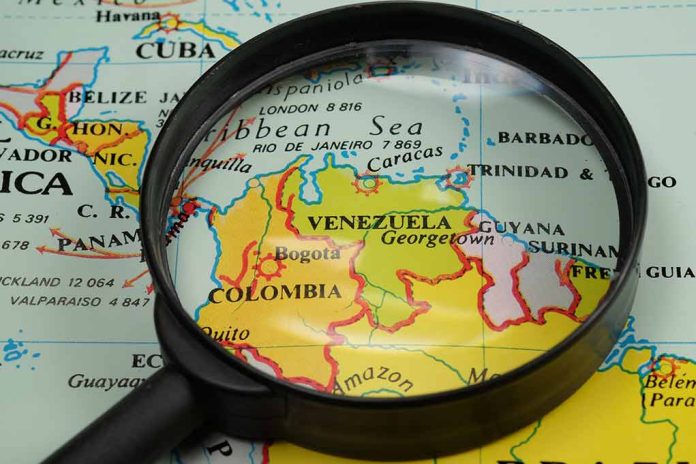
The Catatumbo region of Colombia is once again a theater of violence as ELN and FARC dissidents clash over coca cultivation zones, leading to over 80 fatalities and widespread displacement.
Key Takeaways
- Over 80 people have died, and at least 3,000 have been displaced due to rebel group clashes.
- The violence involves ELN and FARC dissidents over control of coca-growing areas.
- Schools have been converted into shelters due to mass displacements.
- The Colombian government has halted peace talks with the ELN amidst these conflicts.
- President Gustavo Petro’s plan for peace in the region is facing significant obstacles.
Violent Clashes Break Out
Renewed hostilities between ELN and FARC dissident groups have plunged the Catatumbo region of Colombia into chaos. Over 80 individuals have lost their lives, and thousands have been forced to flee from their homes, as the truce between these rebel factions collapsed. The two groups are fighting for control over areas rich in coca cultivation, a crucial resource in the cocaine trade.
The National Liberation Army (ELN) and factions of the Revolutionary Armed Forces of Colombia (FARC) are the main actors in this violent struggle, leading to tragic outcomes such as civilian injuries, kidnappings, and widespread fear among the local population.
Displacement and Humanitarian Impact
This ongoing violence has precipitated a humanitarian crisis, as at least 3,000 people have been uprooted from their homes in just one municipality, Tibú. The displaced have sought refuge in makeshift shelters, including school buildings which have been repurposed for this emergency. The violence has not only displaced people but has also led to undignified conditions for families wishing to bury their loved ones, as military engagements prevent access to burial sites.
Despite these challenges, the Colombian government is attempting to mitigate the situation by deploying 300 troops to stabilize the border region and by delivering aid to those affected by the violence.
Political Repercussions
Under the leadership of President Gustavo Petro, Colombia had embarked on a path toward “total peace,” engaging in peace negotiations with various armed groups. However, these efforts are stumbling in the face of recent developments. President Petro has called off talks with the ELN after they were reportedly involved in the killing of rival group members, shaking faith in the peace process and complicating his administration’s approach to handling armed conflicts.
The inability of the Colombian state to reassert control over former FARC territories has permitted other groups to dominate these vital coca-growing regions, exacerbating tensions and drawing the country deeper into conflict. With rival groups such as the dissident FARC’s 33rd front reportedly declaring war on the ELN, the prospect of a peaceful resolution seems increasingly remote.
Sources
1. Colombia death toll from rebel violence rises to 80
2. More than 80 people killed in Colombia as truce between rebel groups collapses




